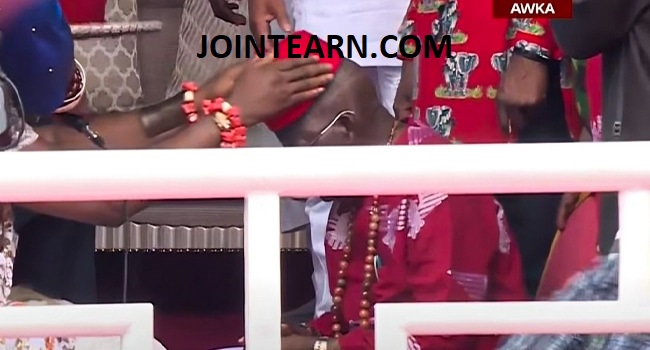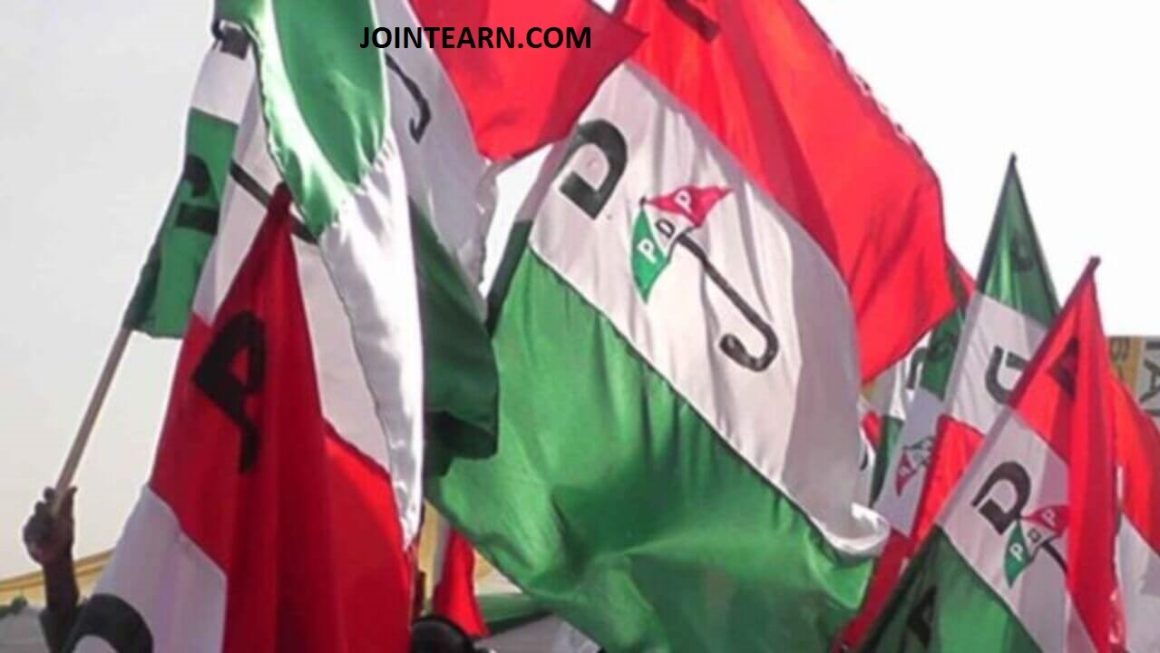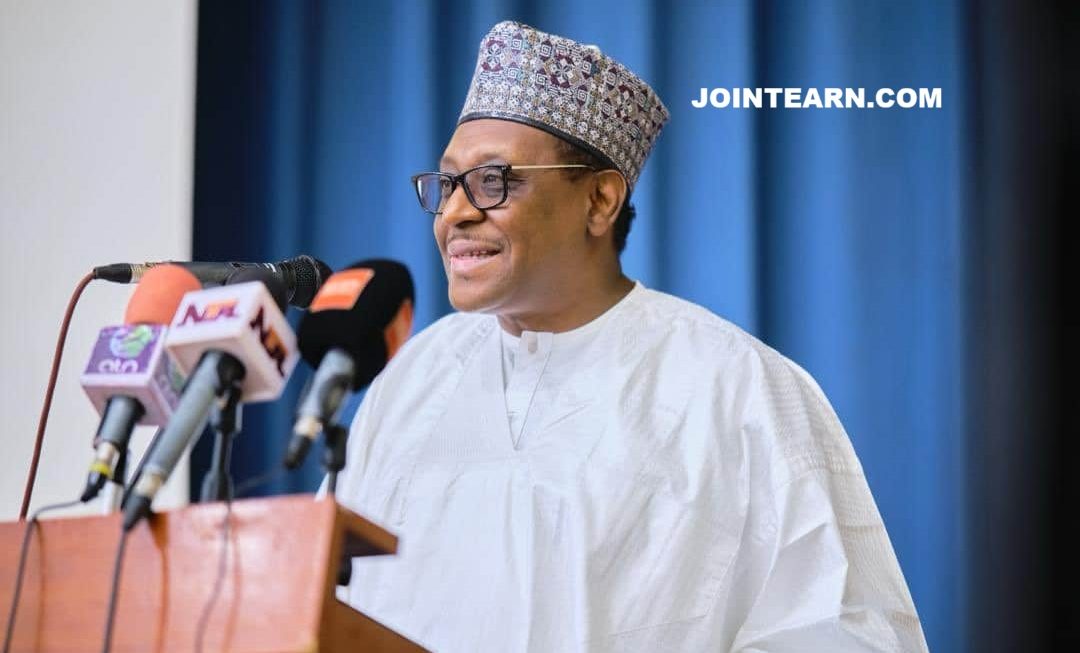President Bola Ahmed Tinubu has been conferred with the prestigious chieftaincy title of “Dike Si Mba” by the Anambra State Council of Traditional Rulers, in a grand cultural ceremony held at the palace of the Obi of Onitsha, Igwe Nnaemeka Alfred Achebe, who is also the Chairman of the council.
The title, which translates to “Warrior from Afar” or “Hero from Outside”, is traditionally bestowed on an individual who, though not a native of the region, has made significant and positive contributions to the development, peace, and unity of the Igbo people and Anambra State at large.
The colorful event drew traditional rulers from across the 21 local government areas of Anambra State, political leaders, royal dignitaries, members of the diplomatic corps, cultural groups, and a crowd of well-wishers. President Tinubu was accompanied by several federal government officials, including Minister of Works Dave Umahi, Minister of State for Labour Nkeiruka Onyejeocha, and senior aides from the presidency.
In his opening remarks, Igwe Achebe said the honor was in recognition of President Tinubu’s “bold leadership decisions, deepening of federal presence in Anambra State, and commitment to strengthening national unity in a time of growing ethnic and political tension.”
“Mr. President,” the revered monarch said, “you have shown an uncommon resolve in ensuring that every part of Nigeria feels the impact of your administration. From the rehabilitation of the Niger Bridge access roads to the increased federal appointments of Igbo sons and daughters, we have observed with gratitude your inclusive governance. It is on this basis that we, the custodians of culture and tradition in Anambra State, unanimously confer on you the title of Dike Si Mba.”
The Obi emphasized that the title was not politically motivated but was a reflection of the traditional institution’s responsibility to recognize those who contribute to societal progress regardless of ethnicity, religion, or political affiliation.
Dressed in traditional Igbo regalia and flanked by chiefs and members of the council, President Tinubu was formally presented with the staff of honor, eagle-feathered cap, and symbolic royal beads, amidst the beating of drums, flutes, and chants from native dancers.
Responding to the honor, President Tinubu expressed his deep appreciation for the recognition and pledged to remain committed to equity, justice, and inclusive governance.
“I am truly humbled by this title,” Tinubu said. “To be called Dike Si Mba by the noble traditional rulers of Anambra State is not only an honor but a responsibility. I accept this with humility and dedicate it to every Nigerian who believes in the strength of our diversity.”
He continued, “This recognition strengthens my resolve to continue working for a Nigeria where no one is left behind—no matter where you come from. Anambra and the entire Southeast are central to the future of this country. You have produced some of the brightest minds, strongest entrepreneurs, and most resilient citizens. My administration will ensure that this region receives its fair share of development and national support.”
The event also served as an opportunity for the traditional rulers to present a list of critical infrastructural and security challenges facing the state. Top among their concerns were the state of federal roads, youth unemployment, and insecurity in parts of Anambra South and Anambra Central.
In response, Tinubu directed the Minister of Works, who was present at the occasion, to immediately review all ongoing federal projects in the state and fast-track those that have experienced delays. He also pledged to support the establishment of a technology innovation hub in Awka to harness the potential of Anambra’s young population.
Notably, the event marked the first time in recent memory that a sitting Nigerian president received such a traditional honor from a predominantly Igbo state, signaling a potential thaw in relations between the federal center and the Southeast region, which has long expressed concerns over political marginalization.
Reactions to the ceremony have been largely positive, with leaders from different political divides praising the traditional council’s gesture.
Senator Victor Umeh, representing Anambra Central, noted, “It is a step towards national integration. Our people have always said we are not against Nigeria, we only want equity. Recognizing President Tinubu in this way shows maturity and sets the tone for constructive engagement.”
However, a few voices expressed caution, urging that the honor be matched with concrete action. A civil society leader, Nkiru Okechukwu, commented, “It is good to honor leaders, but more important is holding them accountable. We hope that after the music stops, real development will follow.”
As the festivities wound down, President Tinubu joined in a symbolic traditional dance with the monarchs, sealing what many described as a historic moment of cultural diplomacy and reconciliation.
The Dike Si Mba title adds to a growing list of traditional honors the President has received across Nigeria, underscoring his appeal in different regions as he navigates the complex terrain of national leadership.












